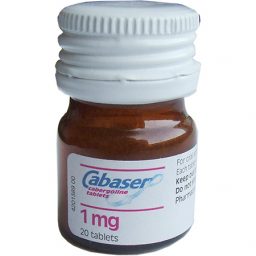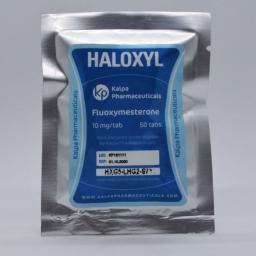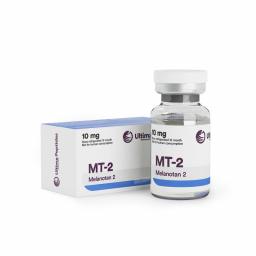Food and what’s in it
Hormones in chicken
Q. How can I avoid buying chicken containing growth hormone as I am worried about what it can do?
The use of growth hormones in chickens is such a widely-held myth that the Australian Chicken Meat Federation has a fact sheet on its web site www.chicken.org.au. The practice of using hormones in chicken farming was banned in the 1960’s. Knowing consumers want to be confident in this ban, the Commonwealth Government’s National Residue Survey Program tests annually for hormonal growth promoters. We are happy to say they report no residues have ever been detected, so any chicken you buy will be free from these chemicals.
Sugar in breakfast foods?
Q. How can I tell if muesli and breakfast bars are too high in sugar?
It is difficult to give firm guidelines on the amount of sugar acceptable. Reading the label is not a help as it does not distinguish between natural sugars from fruit or from added sugar. Diabetes Australia encourages its members to first check out fat, fibre and Glycaemic Index (GI) and then look through the ingredients list to work out where the sugars come from. If the sugars are derived from nutritious ingredients like fruit, these foods are generally healthier than those where sugar is added (and it could appear as sucrose, glucose, dextrose or corn syrup). As a rule of thumb, I suggest choosing brands with less than 20 per cent sugar. However, those over 20 per cent can still be fine if they contain dried fruit or yoghurt.
Tea for antioxidants?
Q. I drink about 3 cups of English Breakfast tea each day. Does all tea have antioxidants and is this changed when you add milk?
All green and black teas contain a similar content of flavonoids which are powerful antioxidants, showing promise as heart-protective and anti-cancer agents. The main thing that affects the amount of antioxidants is brewing time – the longer you leave the tea to brew, the more flavonoids are released. Research has shown that adding milk, sugar or lemon does not alter tea’s antioxidant abilities at all.
Acidophilus in yoghurt
Q. Is it true that the acidophilus in yoghurt is so unstable that it can be destroyed on the short unrefrigerated trip home from the supermarket?
No. According to a major yoghurt manufacturer, you would have to leave the yoghurt in your car for 24 hours at a temperature of 200C or higher to kill the ‘friendly bacteria’. The average trip home of 15-20 minutes would not do that. Still high temperatures may cause the total number of bacteria to decline. So ideally you should bring your refrigerated items home in an insulated carrier bag and pop them straight in the refrigerator. And try to buy from a supermarket with a big turnover so you’re buying yoghurt fresh with the maximum live bacteria.
Caffeine limits
Q. How much caffeine is safe to drink?
Caffeine is a natural stimulant that is present not only in coffee but also in energy drinks, tea, cocoa, cola soft drinks and chocolate. Most adults can handle 300 milligrams of caffeine a day without ill effects (equal to 4 cups of instant coffee or 5–6 cups of tea or 3 cups of percolated coffee). Caffeine, a methylxanthine compound, acts on the nervous system, speeding up the heartbeat and rate of breathing, dilating blood vessels and overcoming fatigue. It also increases stomach acid secretions and is a mild diuretic. Too much caffeine may give rise to insomnia, stomach upsets, jitteriness, palpitations, anxiety and headache. However, many coffee addicts develop a tolerance to caffeine and can drink large amounts without noticing any problems. But if they give it up, they soon experience caffeine withdrawal – headache, drowsiness and lack of energy. These symptoms subside after four to seven days.
Avocadoes
Q. Are avocadoes really oily and fattening?
Avocados ARE high in fat (23 per cent) but their fat is rich in monounsaturates. This type of fat, also found in olive or canola oil, is now regarded as a “healthy” fat which is good for the heart.
Like other fruit and vegetables, avocadoes have no cholesterol. But in contrast to other fruit and vegetables, avocadoes are a lot higher in kilojoules.
Half an avocado supplies 1,070 kilojoules (255 calories) and 28 g of fat, equivalent in kilojoules to two thick slices (60 g) of cheddar cheese.
Wheat grass juice
Q. I have noticed that most health food outlets promote wheat grass juice. What are the health benefits of this drink?
It’s a bit like liquifying fresh spinach leaves or parsley or other fresh herbs. The green liquid is high in vitamin C, folate, minerals and plant antioxidants so would be a nutrient-packed ‘tonic’. But you could obtain the same nutrients by eating a large fresh green leaf salad made with dark lettuces and herbs like rocket and parsley. I don’t think it can live up to all the claims made by its promoters such as ‘defies ageing’ or ‘stops cancer’.
Oily fish types
Q. We are told by nutritionists to eat more oily fish each week. What kinds of fish are considered oily and what is the best way to cook this sort of fish to preserve its nutrient value?
Eating fish or seafood two to three times a week is recommended for health. Oily varieties, include salmon, tuna, sardines, mackerel, gemfish, mullet and herring (both fresh or canned). They are rich in omega-3 fats, containing 5 to 6 times more than white fish. Whilst these fats won’t lower cholesterol, they will keep the heart rhythm steady, the blood free-flowing and blood triglycerides down. The best cooking methods are barbecuing, baking or steaming. Heat does not affect the omega-3’s.
Honey or sugar?
Q. I always thought that honey was better than sugar. But my friend (who has diabetes) tells me that they’re the same. Is that true or not?
Your friend is right. Honey, although natural, made by bees from the nectar of flowers, has no significant nutritional advantages over sugar.
Spoon for spoon, they are very similar, having around 300 kilojoules or 20 grams of carbohydrate per tablespoon, which must be counted if you have diabetes – unlike a sweetener. Both can cause tooth decay.
Honey contains about 75 per cent sugars (mainly glucose and fructose) which is lower than refined white sugar at virtually 100 per cent sucrose. Water, traces of minerals and some B vitamins make up the remaining 20 per cent. But the amounts present are tiny – too small to make a useful contribution to your intake. Unlike bread or breakfast cereal, there are not enough B vitamins in honey to metabolise the kilojoules it supplies.
Cooking with wine
Q I was told when wine (or any alcohol) is cooked it becomes non-alcoholic. Is this true?
The answer depends on how long you cook the alcohol for. During cooking, alcohol evaporates – the longer you cook it and the higher the temperature, the greater the evaporation and the less alcohol is retained in the final dish. If you add the wine or liqueur towards the end of your cooking, the resulting dish will have a much higher alcohol content (in some cases as much as 85 per cent of the alcohol can remain) than one where the alcohol was added at the beginning and heated for an hour or so.
Best Steroid Products Online
Cabaser
|
Haloxyl
|
MT-2 Gen-Shi *Melanotan* 10mg
|


